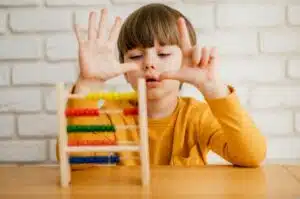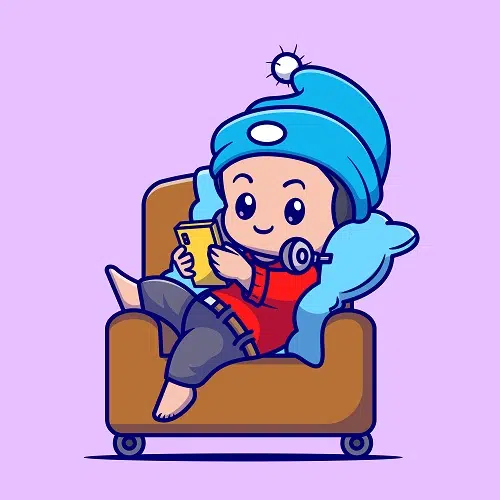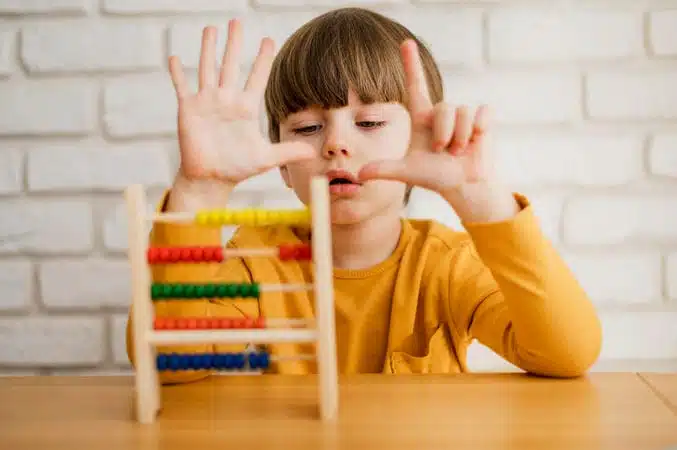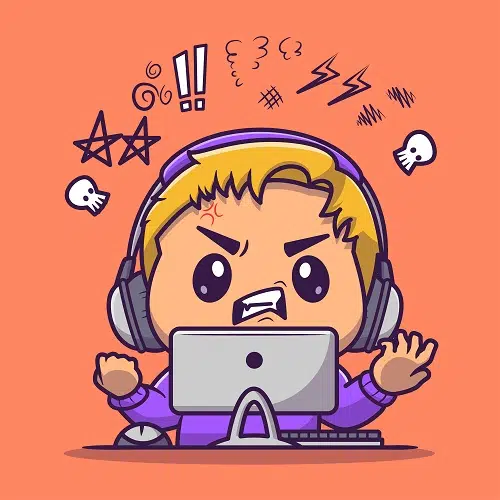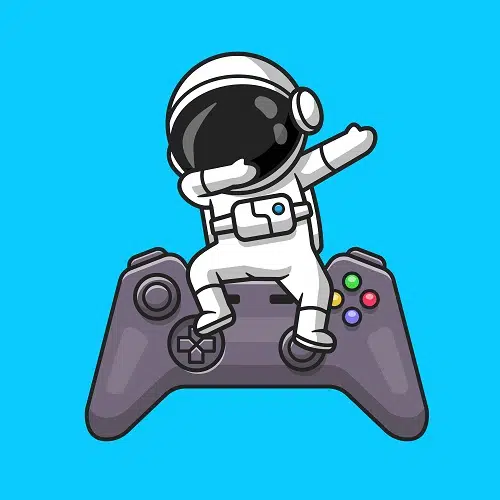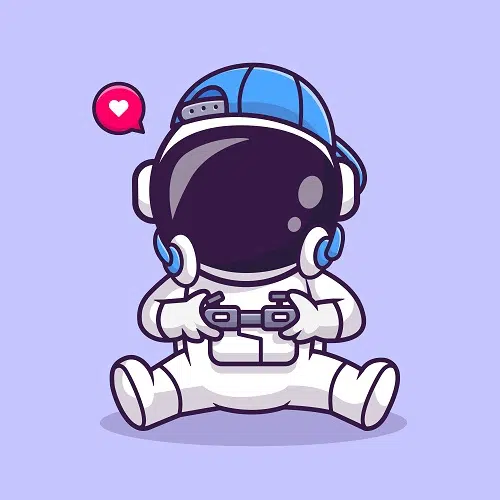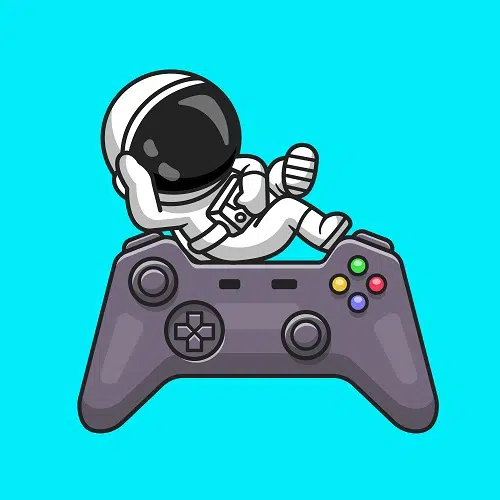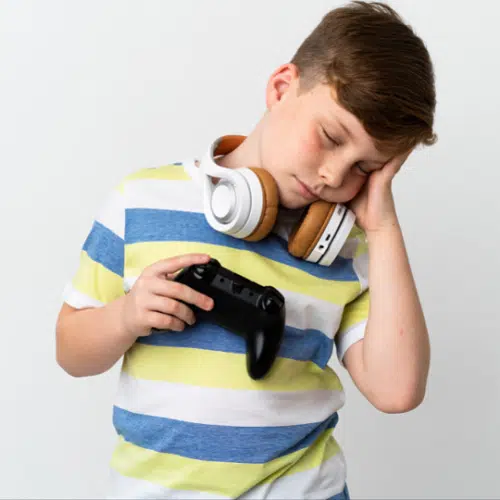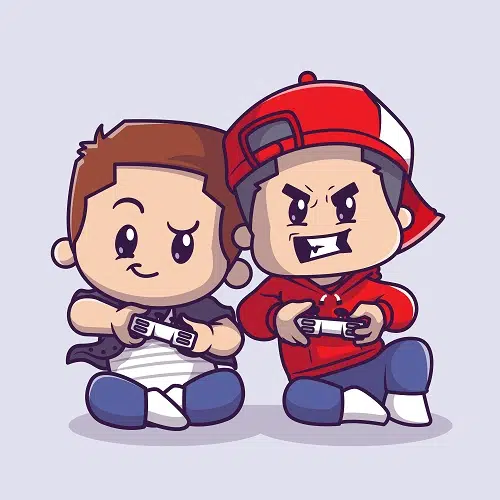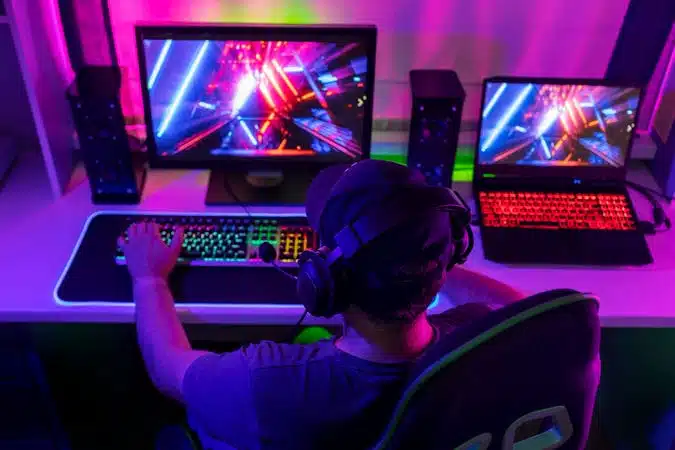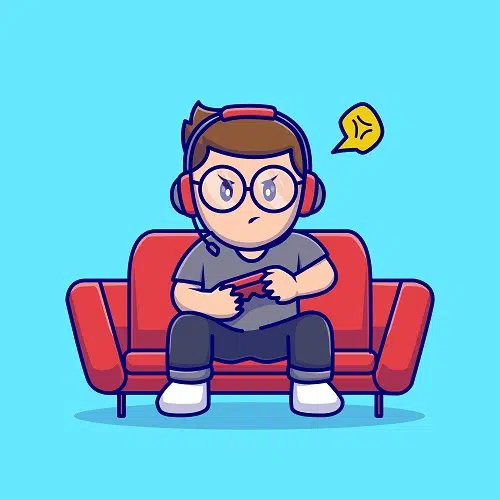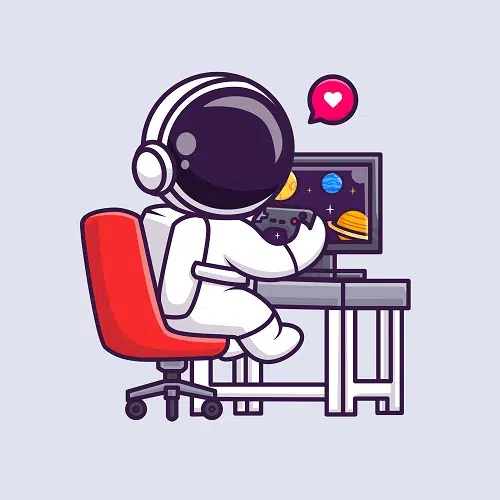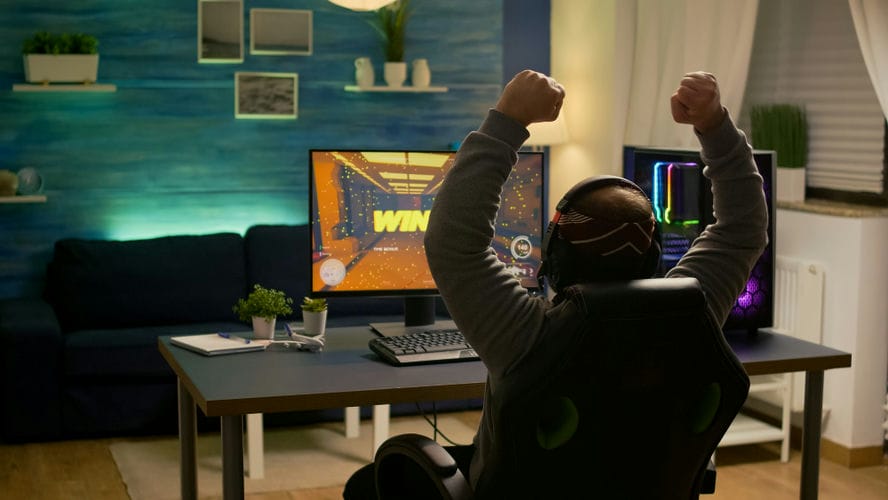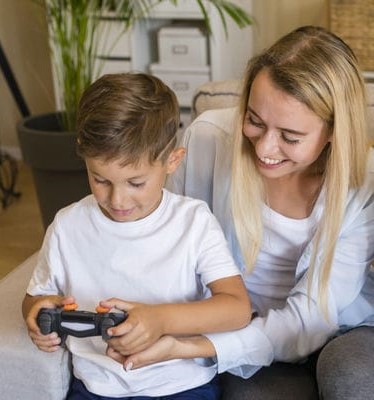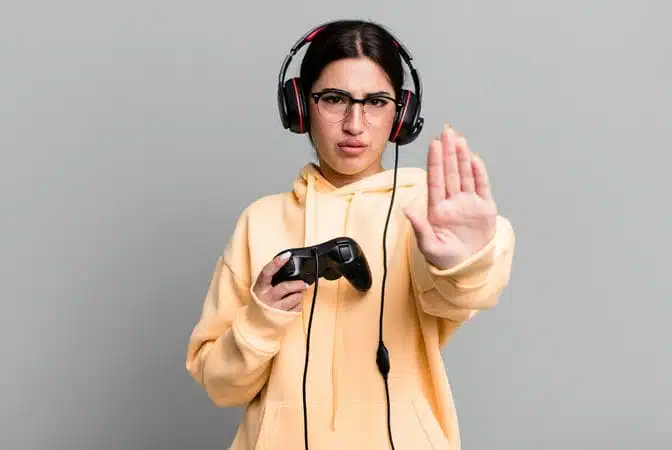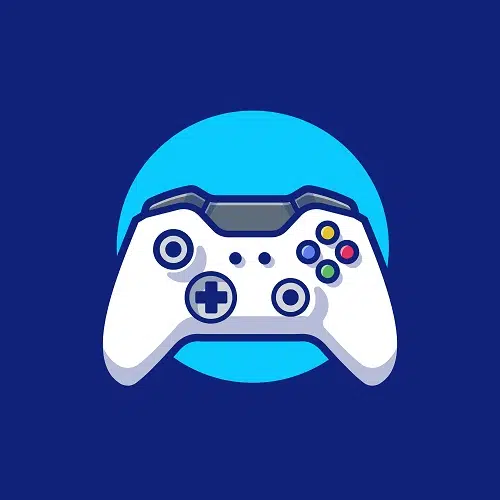One of the most rapidly growing addiction problems in the United States is gaming. The number of ways people can game has only grown each year. As the game production market outstripping devices by ten-fold. If you think someone you love has a video game addiction, what are some signs to watch out for?
The AMA has declared that Gaming Addiction is a real problem. Hours staring into screens and thinking about gaming are known stressors that can hamper every aspect of you or your child’s life. Take a deep breath and get your bearings. We’ll explain what you need to learn to identify if someone you care about is addicted to gaming.

The Symptoms of Gaming Addiction
You should be careful when diagnosing these problems, as there are often people who will break the mold of conventional addicts. A gaming addiction means that your life and health are falling out of good standing while you concentrate on gaming. The steps leading up to full-blown addiction are easy to spot, and most could exhibit some or all the symptoms.
Lying About Time Spent Gaming is a Red Flag
Once someone does something an unhealthy amount, they will begin to tell lies about their use. For instance, gaming systems in children’s rooms can lead to hours spent playing that you do not account for. There are ways to track your kid’s times on all devices, and there are even programs, like Limit Launcher, that will enforce screen time limits.
Lying is a hallmark of an addict. Their need for gaming will drive them to say and do some crazy things to get time playing. One of the best things to do is take away their ability to play while you aren’t around. Hiding controllers or charging cords is an excellent idea that could force them away from games and into something better suited for their situation.

Some ways to keep screen times down and kids out of games are:
- Time Limits – A great way to keep kids off their devices is to set a time limit. The device enforces these time limits, and they will not allow them to access games. Check into the device settings to set an hourly limit for each game or for screen time itself.
- Install an App – One of the best apps to install on your device to keep excess gaming hours down is Limit Launcher. Limit Launcher works from your phone to control all computer and gaming access in your child’s life. You can set hours and times of day for them to game safely and casually.
- Lock Access to Gaming Hubs – There are ways to bar a device’s entry to platforms where they can buy games. Block access by placing the URL in the restricted folder of your parental controls. Restricting their ability to download new games will put a hamper on their gaming times.
- Lock up the Games – A popular trend is tiny safe boxes that have a time lock. These locks open at certain times of the day for the games to be played before they go back into the box for more waiting. Having time in control and obeying it is great because it implies time is in charge.
Being Depressed Can Lead to Hours of Binge Gaming
One of the symptoms of addiction that links to other mental health issues are binge gaming. Binge gaming is playing for an excessive amount of hours with little or no rest. The lack of rest keeps them from performing everyday functions and getting in any routine to fix their lives. Depression is often at play when these binge sessions occur.
Being lazy and unable to move off the couch sounds like an illness that would drive you out to see the doctor. For gamers, not wanting to get off the couch or out of bed and choosing to play games instead is leaning into depression’s effects. Depression should be treated like any other mental illness by seeing a therapist.
Some signs of depression are:
- Overeating – Sometimes, overeating can be a sign of depression. People in the fast-food culture lean heavily into foods that can clog a child’s arteries and bring them comfort. These comfort foods are a gaming addict’s go-to when it comes to a mass of calories for a low price.
- Sleeping too Much – When a child sleeps for an excessive amount of time, especially during the day. They could be showing signs of depression. In the absence of energy, they cannot get enough sleep.
- Emotional Outbursts – When a child is in a serious bout of depression, they could have emotional outbursts that seem irrational. In the teenage years, an overabundance of hormones could send an addicted child into some deep emotional states that could end with them harming themselves.
- Withdrawing – Depression could force a person to want to be alone. They could stop returning calls or allowing friends to come over. They will withdraw into the world of games to ease the pain of depression and leave the real world behind. Take note of a child’s actions, and you will notice patterns of withdrawal.
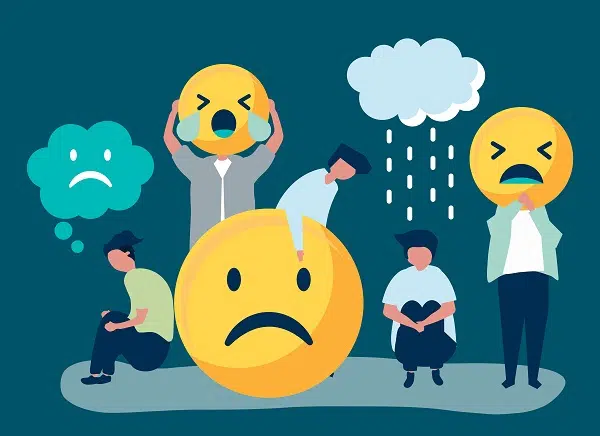
Constantly Thinking and Talking About Gaming Could be a Sign of Dependence
Once you are in an addictive state, your mind is consumed by your illness. Rather than enjoying the outdoors or playing with friends, gaming thoughts take the place of time spent outdoors. Some even state that all other life is drab after a few serious sessions of gaming. This line of thinking is dangerous for the health of all parties involved.
If you’ve ever been around someone who only has one thing on their mind. You will begin to see how hazardous a single train of thought can be. Try and divert their thought processes to more straightforward tasks like cleaning their room or going out for a walk. You’d be surprised how much some sunlight can have a positive effect on a gamer.
While you can’t be inside a child’s head to see how much they think about gaming. It would be a good idea to talk with them and see if they have any news outside of the game. Keep in mind that exuberance can conceal addiction, so watch what you ask.
Feeling Bad While Not Gaming is a Symptom Worth Checking Out
If the person is complaining of headaches or other illnesses while they are away from their games, they could have an addiction problem. As they are away from screens and controllers, their mind is trying to fill the void with whatever it takes to get back into the game. An addicted mind will play tricks on the person until it gets what it wants.
Feeling bad is often attributed to withdrawal symptoms of gaming. Aches and pains could come from hours plopped in front of a screen with flashing lights and whirling colors. We shouldn’t ignore the detrimental effects it has on our brains and bodies. Temper hours gaming with time spent reading or playing a physical sport in real life.
A few suggestions to improve mood when not gaming are:
- Watch Some TV – A great way to derail someone’s mind when they can’t stop thinking about gaming is to watch some TV. All types of streaming services and pay-channels will allow the child to find something to soak up their time away from the console.
- Join a Sports League – The way sports are set up means that you could have a way to keep your child busy year-round. Choose something that allows them to interact with other children. While getting out some of the excess energy they have stored up from being in front of the television all the time.
- Take a Martial Art – Martial Arts are a great way to get kids away from gaming. It is a physical and demanding art form that encourages discipline and promotes a healthy lifestyle. It will light a fire inside children that drives them towards accomplishment and makes them tough inside and out.
- Play a Board Game – Sometimes, kids just want to compete. If they are spending hours playing video games breaking out an old board game from their childhood could wrench them away from the computer and back into regular life. Nostalgia never hurts when dealing with a gamer; use every advantage you can get to save the child.
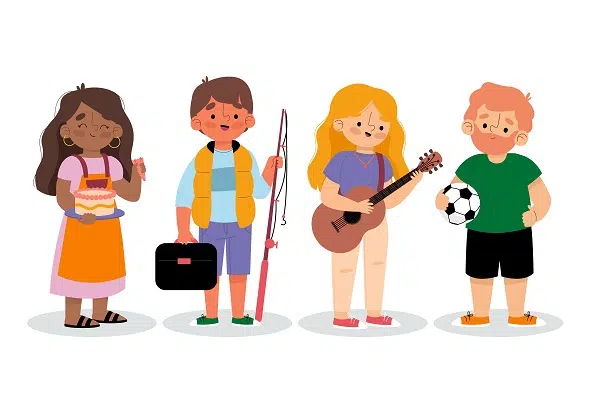
Extended Gaming Times for Simple Effects is a Huge Risk
At first, playing games gives your heart a jolt, and your mind is opened to a whole new realm of possibilities. Some even describe the feeling as a rush. As your time spent playing the game increases, these effects could become less and less effective. When the gamer has to spend several hours playing to get this effect, they could be facing addiction.
Hours in front of the television won’t have the same effect for some addicted gamers. They could need an insane amount of trigger time to give them the feeling they had when they first began to game. As time increases, count on their health and hygiene to take a plummet. Open the curtains and let the sun in to get them up and moving.
Some ideas to break up extensive gaming sessions are:
- Go to Dinner – An excellent way to get out of the gaming room is to head out to dinner. Choose a place that is vibrant and has a menu that will stimulate the taste buds. The system will need a shock on all fronts to break the cycle of over gaming.
- Hit the Gym – Physical activity is a great way to get your child out of the house. Going to the gym for a Yoga session or to take a Spin class is a great way to burn off some calories and hit the reset button.
- Compete in Something – Playing a physical game is a great way to shake the rust off from video games. Go bowling or hit the mini-golf course to get some visceral competition from your friends.

Being Unable to Walk Away from a Game is a Sure Sign of Addiction
Once a gamer has become addicted, they may not see the viability of walking away from a game. It could be their way to put off feelings or to take on the mantle of a brave warrior to hide all their fears and emotions. If they have trouble putting the game down, they could have an addiction that requires professional help.
While there is a bit of competitiveness in gaming, it should not go beyond a few matches. If you find that you or your child has trouble pulling themselves away from the screen. Take the time to break the habit. Teach your child to walk away without resolution of any kind. Knowing that gaming exists outside of normal life is imperative to someone with a gaming addiction.
Some ways to make a child back away from a game are:
- Enforce Gaming Limits – When it is time to stop playing games, make sure that there is a clean break. There can be extra time or letting them play whenever they feel like it. To keep them from going back over and over. Show that there is no getting around this rule and they must move on.
- Explain Winning/Losing – Often, the most challenging part of walking away from is the feeling that there is still part of the game left to play. Explain that once your turn is over that is it. No more going back. Move their minds on to something more productive.
- Provide an Alternative – If the child is struggling, it could be time to break out the big guns. Choose their most favorite activity outside of video gaming, and allow them to have the day of their dreams. If they want to race go-karts, spend the day down at the track. If they want to catch a fish, spend all day at the lake or river.
A Lack of Interest in Other Things Could be a Symptom of Addiction
Often gamers will feel like they don’t want to do anything else but play games. The world could be too hard on the outside, and they need a calm port to keep their emotions and mind in check. Once they have begun to shun other activities that they used to enjoy, they could be staring down the barrel of a major addiction that could have disastrous consequences.
Boredom and laziness almost always have their roots in depression. When your body isn’t producing enough of a specific chemical type, it can make you feel like you don’t have the energy to do anything. These bouts of depression are normal but can feel like they won’t ever end. Pace yourself and make small steps to get back out there.
Some things to look for if you think your child has a lack of interest are:
- Check Their Other Hobbies – If you go and check the things they used to do before. You could notice that they have stopped or have thrown away the items. Often when a person goes all-in on gaming, they will forsake other parts of their lives, like an old hobby.
- Talk with Them – One of the best ways to know what is going on with your child is to ask them. It is a bit old school, but it gets the point across. If they open up with you, there could be some ways to help them through this dark part of their life and onto bigger and better things.
- Ask Their Friends – Another great place to find out if your child is starting to withdraw is to ask their friends. Friends know that if a person is spending excess time away, they could be gaming or something else at play.
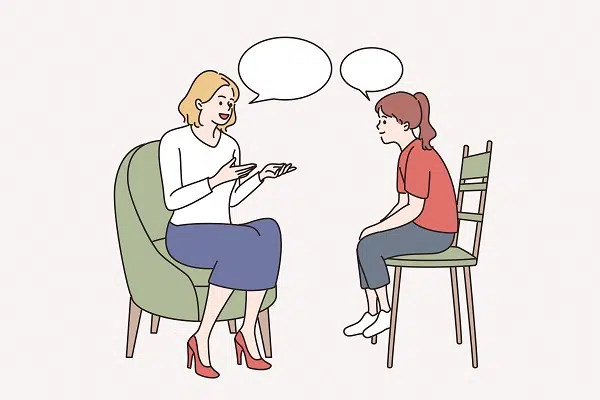
Destruction in Other Parts of Life can Mean a Serious Addiction.
When a gamer’s life starts to suffer in all other parts of life, they could have an addiction. If they are experiencing trouble at work, they could retreat to the gaming world to forget about the problem, and sometimes they never come back. Also, they will lose friendships and possibly even a spouse before they seek help.
As life starts to fall apart, they will have no other recourse but to double down on what life has given them. Don’t allow someone you care for to get into a situation where they choose to game over visiting with friends or spending time outside. Put roadblocks in their path to help them steer away from games and into something healthy.
Some relationships that will suffer from a gaming addiction are:
- Parental Relationships – Parents are the first ones to step in when their child’s lives going in the wrong way. This friction will cause a rift between the child and the parents that will only get worse as their addiction continues.
- Dating Relationships – Dating in the teenage years can be challenging. If a child is withdrawing from relationships to play video games, they could have a serious addiction problem.
Practice Some Caution When Addressing Video Game Addiction
Don’t draw inferences based on what you think about addiction. Once you feel a problem could be happening, learn to look for clues that reaffirm or prove your hunches before approaching your friend or loved one. Leveling an addiction problem at someone who is just exuberant about game playing could lead to a stigma that follows them for life.
It is best to have a caring and close-up conversation with your friend or loved one and let them know how much gaming and staying away from the family has created a rift between you. Give them alternatives to gaming like reading or exercise and participate in the activities with them if you want to show them that you care.
Health Risks Associated with Gaming Addiction
While some people say that games are harmless, there are scores of children and adults out there who suffer from the effects every day. From the time children can hold a screen, they are given devices that allow them to game instead of interacting with their peers and exercising by playing.
The health risks associated with gaming addiction are:
- Repetitive Use Injuries – One of the most significant health risks in gaming is overuse injuries to the hands and neck. Being hunched over a screen or having a controller in your hand for long periods can make your digits not work correctly. Arthritis can set in for some children around the age of 15 if they game too often.
- Increased Violence – There’s a chance that if a child has a gaming addiction, they might be more prone to violence. Living most of their time involved in a violent video game could make the lines between life and reality blur. They could use aggression in situations that aren’t proper for young children.
- Lack of Attention Span – When children have a gaming addiction, they find it hard to complete schoolwork or concentrate on anything that isn’t gaming. They throw so much of their attention into games that there could physically and mentally be nothing left in the tank when it comes time for schoolwork.
- Skipping Benchmarks – As kids age from adolescence to adulthood, they should meet and overcome several benchmarks. These benchmarks are situational, like social lives and after school activities, that show a child is progressing towards maturity after encountering typical life situations.
- No Physical Activity – Not exercising and being involved in sports can be very hard on a child’s body. As animals, we evolved to the top of the food chain by being on the go and moving where the food sources were. Gaming leads kids to sit for weeks on end without any kind of physical stimulus.
- Lack of Social Life – Children need to be involved with other children. Learning to play and express themselves is a crucial part of building their own identity and becoming who they are as a person. Games will keep kids out of social circles and away from their peers whose input and friendship they need to thrive.

Alternatives to Push Instead of Gaming
When it comes to gaming, there are always activities that can be used in their absence. The only rub is finding something that keeps them away from gaming while capturing their attention. Choose activities that push them towards living real life and not relying on electronics.
Some activities to try to take a break from gaming are:
- Exercise – One of the best ways to clear your mind and kick an addiction to gaming is to start exercising. Doctors say that gaming addiction is an impulse control disorder. That means that once you recognize the impulsive move, you try and do something else. This takes some practice and awareness but can be fruitful.
- Read – Reading is a great way to take the mind off of games. A good book can instill the same feeling as inhabiting a character, just like in a game. Once they find something that interests them, they can begin to move away from the gaming consoles and head towards literature or comics that pique their interests.
- Cook – Cooking is another great way to shift the mind away from gaming. The timing and instructions required to cook will take hold of their mind and give them a sense of accomplishment.
- Crafting – Making something with your hands gives you a sense of calm and improves focus. Working with paints and other crafting materials can be a powerful tool that unlocks parts of the mind that could be the cause of such a serious illness as gaming addiction.
- Music – Another excellent healing tool for gaming addiction is music. It can get us moving and teach us things about life. Hearing specific lyrics could take a person back to a simpler time that wasn’t clouded with so many devices and distractions.
- Taking the mind off of gaming could be a huge step in solving the deeper problem of addiction. Using these things is a great way to control impulses, but you can’t rely on impulse control alone. Take some time to talk with a therapist about how gaming has changed your relationships and what you hope to accomplish by putting them down.
Conclusion
Gaming addiction is a real problem. It was defined by the AMA as an impulse control issue and has several avenues for treatment. Talking about addiction is one of the best ways to prevent a child from falling into the trap of relying on video games to increase their mood. Let them know that you are there for them and that by working together, things will get back to normal.
Treatment for gaming addiction is something that must be heavily researched before you jump in. Try alternative methods of cutting screen time with an app like Limit Launcher to reduce screen times and make gaming a nonstarter.

